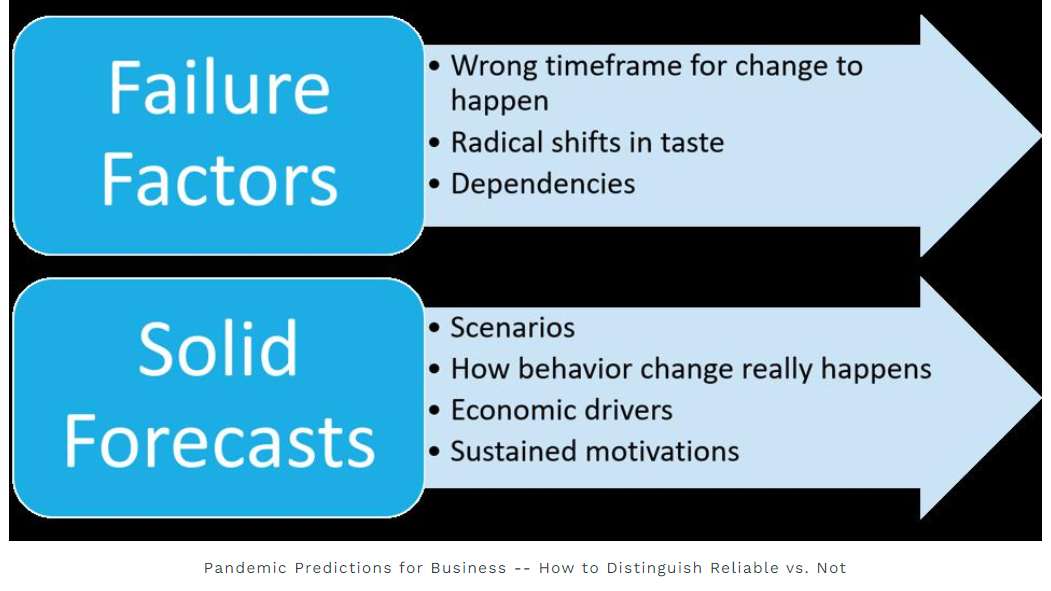|
By Steve Wunker This blog first appeared as Steve Wunker’s piece for Forbes Pandemic prediction has fast become a cottage industry, but ridiculous forecasts abound. Leaving aside predictions about how the coronavirus crisis will medically progress and ultimately resolve, assertions about how business will respond can range from well-grounded to unhinged. Unfortunately, the press often doesn’t distinguish between the two, treating all future-gazing as credible. It isn’t. As someone whose career is staked on predicting how industries will evolve, I couldn’t survive for long without having clear criteria about how and why business change actually happens. Here’s what these lessons mean for how business will alter in response to COVID-19. First, look for the fallacies in reasoning. There are three common ones underlying bad predictions about how the coronavirus pandemic will affect business going forward:
Now that you know how to spot the warning signs of bad predictions, here are four signals of good ones:
Forecasting the future is always a hazardous endeavor, but – as in any dangerous sport – there are key watch-outs for failure and leading indicators for success. Spotting those in business predictions about the coronavirus will put you in far better position to thrive during our inherently uncertain future. Click for a series of working papers on managing an organization through the coronavirus crisis. Comments are closed.
|




5/25/2020